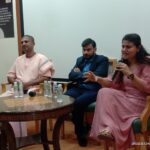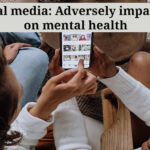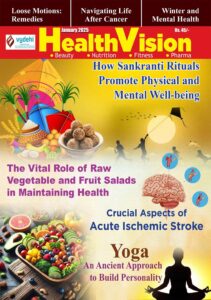COVID-19 -produce mental health strength to enhance wellbeing during this pandemic.
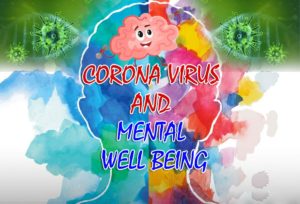

One real story of an individual overcoming the problematic challenges of those with a strong mentality is enough to motivate many, even if it is an indirect experience. Such experiences can occasionally enhance to overwhelmed unavoidable quandaries. So we are going to attempt to find out the process and the secret through which one could overcome such critical situations by bringing up a few curious questions of thought.
Resilience: The mental weapon
Most empathy connects the body and mind, and these flows sometimes help to overcome difficult challenges. A person with a healthy mentality is different from someone who owns a glass mental. First, there is s habit of quickly escaping from “to blame,” and second, a practice of reasonably analyzing the cause. How can one manage a strong mentality? How one can restore a broken state of mind? The characteristics of people with muscular mental strength are those who can recover quickly without breaking their minds despite repeated frustration and stresses. This ability is called ‘resilience.’
The study on resilience began in the Hawaiian Islands of the United States in the 1950s and selected about 800 infants who were just born to track their growth for 30 years until they turned 30.Of the 800 chosen in the study, 200 categorized as high-risk. These 200 children were born in extreme poverty, born with large and small illness;parents with alcoholism were children and whose parents were mentally ill. The study expected that dangerous children would grow up to be troubled or suffer from mental illness. Furthermore, 30 % of the high-risk kids grew up to be healthy adults with no problem and even grew more mentored than kids who grew up in a pleasant environment. What made these kids different from other high-risk kids and grew up to be the owner of an influential mentor, even in adverse situations?
Various characteristics have been observed in these children.
1.Firstly, they showed the ability to emotionally separate from troubled parents. They continue to avoid blaming their parents and the environment, shown ‘emotional independence’ from their parents as they escape from “blame” rather than being swayed by negative influences.
2.Secondly, these children exhibited the characteristics of actively pioneering the environment. These children have found someone who assumed the role of a foster parent, or there was a teacher who acted as a good role model.
3.Thirdly, some activities and hobbies could produce negative emotions. These children had the characteristics of managing stress by concentrating on the events that can extract painful feelings when they confronted some hard situations in their lives.
To sum up, these children were not subjected continuously to adverse effects passively, but to be able to keep away from negative influences and to develop ways to release the built-up emotional stress.They also exhibited the characteristics of the pioneering environment that had the potential of having a positive effect on them. ‘
Am I controlling my life?
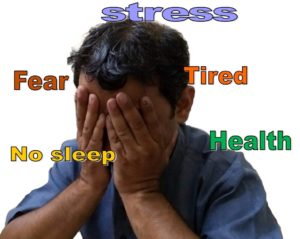

However, is this form of self-control only available to energetic people? No. ‘Am I controlling my life? There are two simple ways to improveself-control. (a) The first is, ‘Leave things that you cannot control.’There is little control over parents who were in high-risk groups who fight, drink, and cause problems every day. We cannot control even the fact that they were born in a low-income family. However, when we try to control things that we cannot control, stress often increases. Studies of anxiety suggest that people are stressed not because of pressure or situations, but when they feel stressed and unable to manage and respond to the stress situation. So to reduce stress and increase control, it is a good idea to determine whether he can control it or not and let it go if he cannot control it.
(b) The second way to increase control is to “focus on what you can control.” Among the children in the high-risk group are overly sensitive to their parents’ expressions and emotions, such as whether they are sad, angry,or laughing. Thus, he does not watch his feelings. Because of their parents’ faces are not good, they will fight again, and they will become uneasy and feel unsafe, so they will try to enjoy their control in a way that looks at feelings inside. However, these attempts are challenging to succeed because parents’opinions are theirs, and it is their feelings to fight with each other.
Somethings can be controlled, but controlling the minds of others is not of them. The heart is mine, emotion is even mine, and he cannot control parents fighting but can control thoughts and feelings that are hurting, dragging, and cause to suffer. However, there are times when he feels like there is nothing that can control in a situation where mental break comes under much stress. That is why we usually needed to know what can control and what cannot control. You could follow the following simple method to identify the elements that can control and the ones that are out of your control.
Fold a sheet of paper vertically and write on it ‘cannot control’ on one side and ‘can control’ on the other side.Moreover, if it is in a situation whereit is in, just write down what can control and what cannot control. This procedure alone reveals the ambiguous feeling, thoughts, or arousals that were deep confidential the brain, resulting in an apparent, objective effect. In a nutshell, what believe to be “controllable” sometimes turns out to be “uncontrollable,” or vice versa. Then, the contents from one side of the paper can transfer to another party.When a list completed through this modification, it is clear what needs to be let it go off and what demand concentrate. Then, even if it seems trivial to start with, it would gradually begin to feel increasingly he is controlling life, and this is important. As one learns to restrain oneself and controls life, one would embarkon exploring positive about oneself, and the more control, the more robust control becomes. People with strong mentality know their feelings that are more difficult than being in ‘blame’ swamp even if they are experiencing repeated frustrations in a field and make choices to appease themselves.
Furthermore,analyze the cause of why these frustrations repeatedly happened. They tend to recover from failures and disappointments as they can control. Moreover, anyone with strong mental skills can copy their mental skills effectively.


Lee Jae Ku -Ph.D. Scholar at CHRIST (Deemed to be University),
No 6023,Mykonos,sobha city,Thanisandra,Hegdenagar
Bengaluru-560077 Mob: 9916741186
About the Writer:Lee Jae Ku is currently a regular Ph.D. Scholar at CHRIST (Deemed to be University), Bangalore, under the guidance of Professor, Dr. K. Jayasankara Reddy, Department of Psychology and Ph.D. Coordinator, Centre for Research at CHRIST (Deemed to be University), Bangalore. The area of study is Neurocognitive Psychology, and current research is on Neurocognitive functions, Emotional Intelligence, and Academic Self-Efficacy.He was former Indian team chief coach in Taekwondo.




